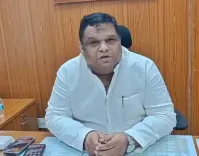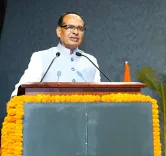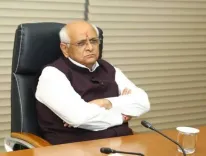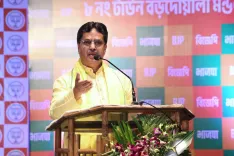Is the 50th Anniversary of Emergency a ‘Black Day’ for India?
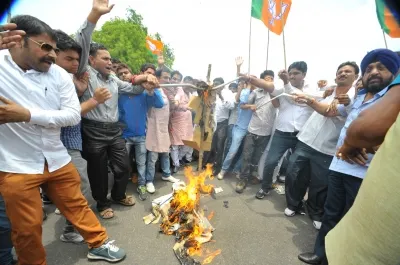
Synopsis
Key Takeaways
- Emergency Timeline: The Emergency lasted from June 25, 1975, to March 21, 1977.
- Media Suppression: During this period, the media faced severe restrictions and censorship.
- Political Repression: Many political leaders were imprisoned without due process.
- Legacy of Fear: The Emergency left a lasting impact on the political landscape of India.
- Importance of Vigilance: The BJP emphasizes the need for vigilance to protect democratic values.
New Delhi, June 24 (NationPress) As the nation observes the 50th anniversary of the Emergency declared in 1975, the Bharatiya Janata Party (BJP) has initiated a series of events nationwide to commemorate what it describes as the “darkest chapter of Indian democracy.”
Party leaders and activists have united to reflect on the 20-month era of oppressive governance under former Prime Minister Indira Gandhi.
BJP spokesperson Tuhin A. Sinha stated, “On the midnight of June 24-25, 1975, Indira Gandhi extinguished democracy by enforcing the Emergency. For 20 months, citizens faced a severe crackdown on their freedoms. The media was muzzled, the judiciary compromised, and opposition figures imprisoned.”
He recounted the personal grief of Defence Minister Rajnath Singh, who was allegedly barred from performing his mother’s final rites during this tumultuous period.
“Even after five decades, that dark era continues to resonate within the heart of Indian democracy,” Sinha remarked.
Sinha also criticized Congress leader Rahul Gandhi for questioning the integrity of democracy under the BJP during his overseas trips. “Rahul Gandhi claims that Sikhs cannot access gurdwaras, criticizes the Election Commission, and challenges judicial decisions like that of Ram Janmabhoomi. Ironically, these statements come from a leader whose party once enforced the Emergency,” he added.
BJP members across the nation are sharing their personal experiences from that era.
Balachandra, a party member from Belagavi, Karnataka, recalled being only 20 when he, along with fellow 'satyagrahis', faced imprisonment and torture.
“The media was entirely silenced, and even ordinary citizens were subject to police scrutiny,” he noted.
In Agra, Uttar Pradesh Minister Yogendra Upadhyaya labeled the Emergency a “black mark” on Indian democracy. “Civil liberties were obliterated. Leaders from Atal Bihari Vajpayee to everyday party workers were incarcerated because Indira Gandhi, facing disqualification from office, sought to preserve her political career,” he stated.
Bihar Minister Sanjay Saraogi echoed these sentiments, supporting Prime Minister Narendra Modi’s call for documenting the history of the Emergency. “The transgressions of the Congress must be unveiled. The manner in which democratic rights were suspended back then serves as a crucial lesson for future generations,” he emphasized.
The BJP’s nationwide initiatives aim to inform the youth about the significance of protecting democracy and honoring the sacrifices made during the Emergency.

